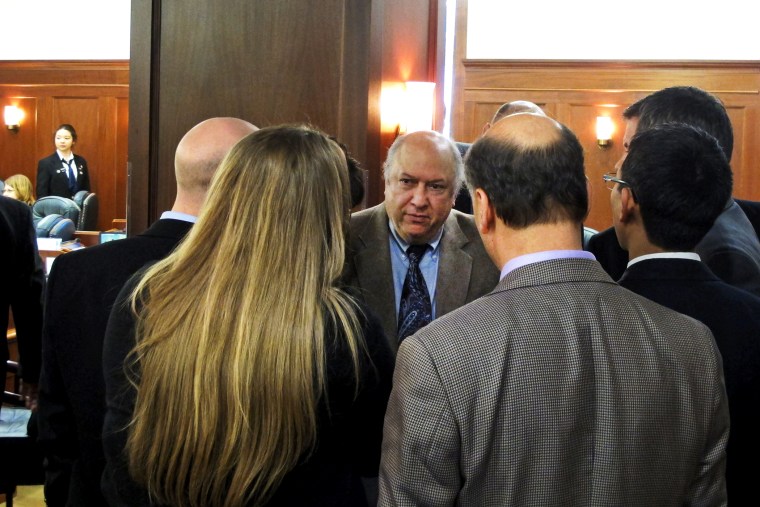There's been quite a bit of activity on raising the minimum wage recently, with Connecticut, Maryland, and Minnesota each recently approving wage hikes, and states like Massachusetts, Hawaii, and Vermont poised to do the same. As we
discussed last week, all six of these states have something in common: they're all "blue" states governed by Democratic legislatures working with Democratic governors.
But then there's Alaska, which has a Republican governor working with a Republican legislature, but where a minimum-wage increase is nevertheless advancing. Reid Wilson
reported:
What if they held a vote to increase the minimum wage and most of the Democrats voted no? That's what happened in Alaska on Sunday, where the vast majority of Democrats in the state House voted against a measure that would have given low-income workers one of the highest minimum wages in the entire country. The state House voted by a 21-19 margin to raise the minimum wage to $9 an hour on July 1, 2014, and to $10 an hour the following year. Twelve of the no votes came from Democrats, while just two voted to raise the wage.
If you're thinking there has to be more to this story, you're right.
"It's a strange vote, and it's going to be difficult to justify to my voters," state Rep. Scott Kawasaki (D)
said during the debate. "I simply think this is a disingenuous piece of legislation."
And in this case, Kawasaki's concerns are well justified.
Ned Resnikoff
highlighted some of the political circumstances.
So what happened to reverse the usual political dynamic in Alaska? Nothing, according to [state] House Democrats. They still want to raise the minimum wage in Alaska, but they want to do it through a ballot initiative, which would raise the minimum wage to $9.75. The initiative is already headed for the August primary ballot, and Alaska Democrats say the Republicans are just trying to preempt it with a wage hike of their own. [...] Democrats claim Republicans only want to approve the minimum wage hike in the short run so they can kill it in the long run.
This isn't as confusing as it may seem.
Progressive activists have worked to get a minimum-wage increase on the statewide ballot, and the issue is currently slated for a vote in August. But if the state legislative session runs long, even a little, Alaskans would vote on a minimum-wage increase in November. Republicans are eager to avoid this -- it would mean the possibility of more progressive voters turning out on the same day Sen. Mark Begich (D) is up for re-election.
By approving a wage hike through the legislature, Republicans would kick the issue off the ballot, making the ballot referendum moot.
Some of you are very likely thinking, "So what? If low-wage workers are going to benefit, who cares whether the increase comes from voters or legislators? Democratic turnout strategies are less important than the economic impact of a higher minimum wage."
But it's not that easy. If a minimum-wage increase is approved by voters, it's locked into statewide law for at least two years -- state lawmakers can't simply repeal what the public has done through a referendum. But if Alaska Republicans approve a minimum-wage increase now in order to keep the issue off voters' ballots, they can simply return to the issue next year and undo the increase, repealing their own law that they don't really support anyway.
And why would Democrats fear such an elaborate trick? Because it's exactly what Alaska Republicans did
in 2002 to keep the issue off the statewide ballot.
Alaska Dems didn't vote against the minimum-wage bill because they oppose an increase; rather, they oppose what they see as a ridiculous game that would ultimately end in no increase at all.
